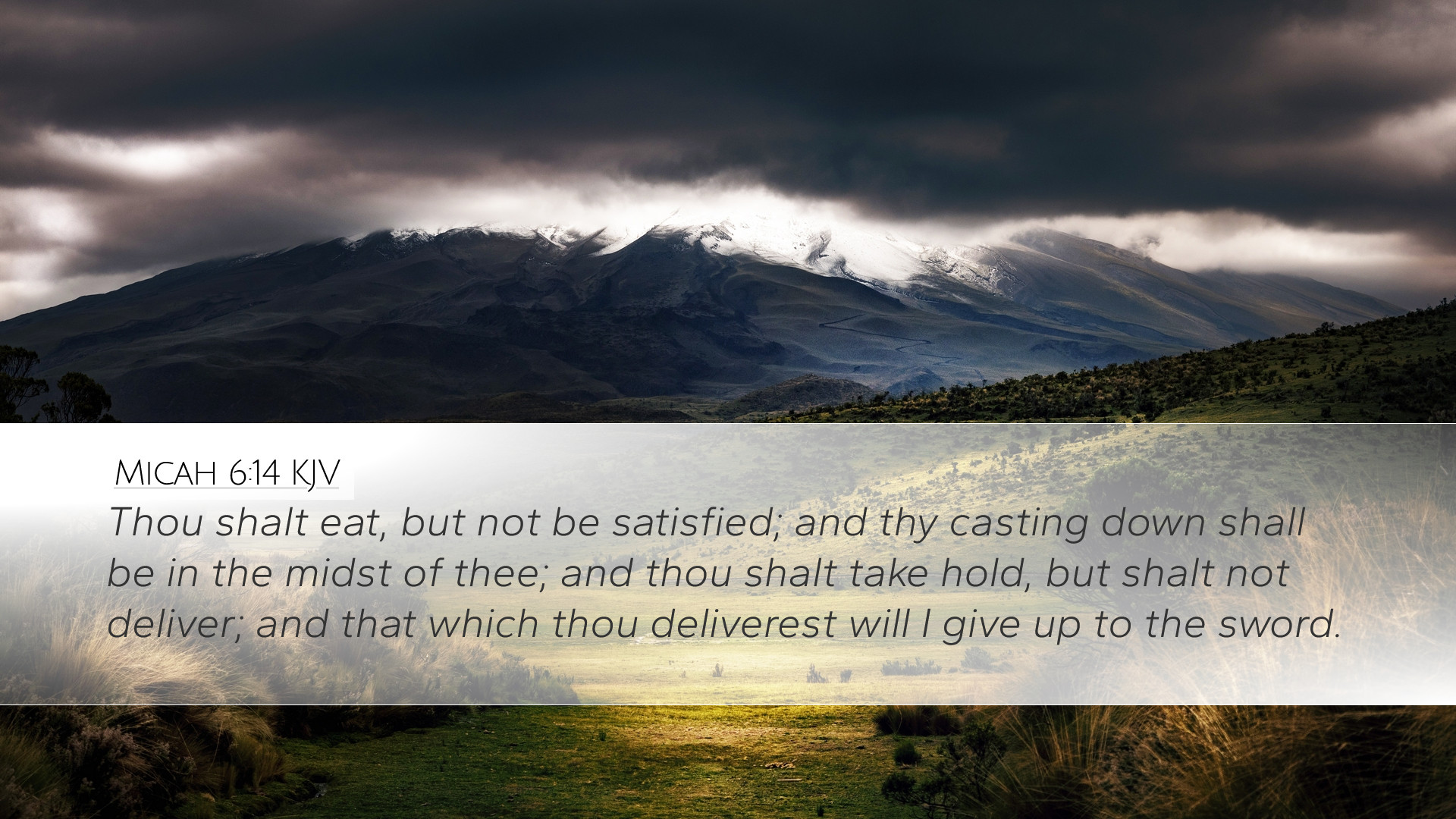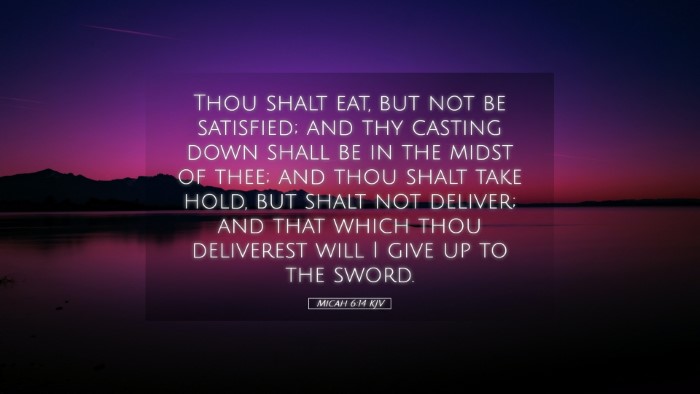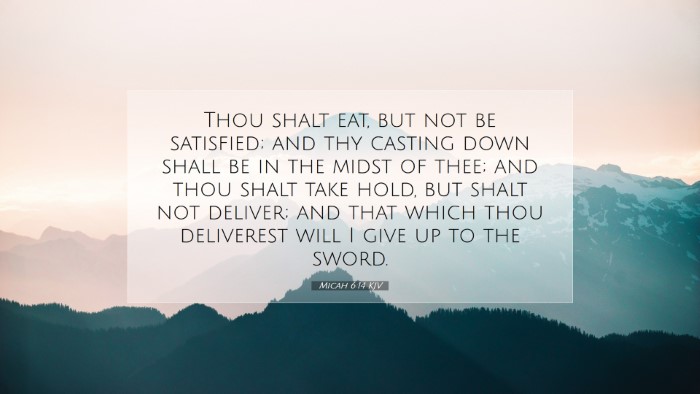Old Testament
Genesis Exodus Leviticus Numbers Deuteronomy Joshua Judges Ruth 1 Samuel 2 Samuel 1 Kings 2 Kings 1 Chronicles 2 Chronicles Ezra Nehemiah Esther Job Psalms Proverbs Ecclesiastes Song of Solomon Isaiah Jeremiah Lamentations Ezekiel Daniel Hosea Joel Amos Obadiah Jonah Micah Nahum Habakkuk Zephaniah Haggai Zechariah MalachiMicah 6:14
Micah 6:14 KJV
Thou shalt eat, but not be satisfied; and thy casting down shall be in the midst of thee; and thou shalt take hold, but shalt not deliver; and that which thou deliverest will I give up to the sword.
Micah 6:14 Bible Commentary
Commentary on Micah 6:14
Verse (Micah 6:14): "Thou shalt eat, but not be satisfied; and thy casting down shall be in the midst of thee; and thou shalt take hold, but shalt not deliver; and that which thou deliverest will I give up to the sword."
Introduction
The verse in Micah 6:14 serves as a profound admonition regarding the consequences of disobedience and unfaithfulness to God's commandments. It articulates the emptiness of life's pursuits when they are devoid of Divine approval. The imagery employed by Micah vividly illustrates the futility and ultimate judgment that befalls those who stray from God's precepts.
Contextual Overview
This verse is located within a larger rhetorical and prophetic framework where Micah addresses the people of Israel, specifically spotlighting their spiritual and ethical shortcomings. It appears in a section where God, through the prophet, presents a case against His people, indicating that their offerings and rituals are insufficient without genuine repentance and social justice.
Summary of Insights
- Matthew Henry: Henry highlights that the verse underscores the discontentment that follows a life disconnected from God's provision. He interprets 'eating but not being satisfied' as a consequence of pursuing material and earthly gains without alignment to God's will.
- Albert Barnes: Barnes focuses on the phrase 'casting down,' suggesting it refers to the spiritual and physical calamities that would afflict Israel due to their unfaithfulness. He explains that there are dire consequences when one tries to seize success or fortune without God's blessing.
- Adam Clarke: Clarke examines the futility encapsulated in the actions of 'taking hold' yet failing to deliver. He interprets this as a reflection of the inability to attain true peace and security when one is under divine judgment. The notion of deliverance leads him to contemplate the reality of spiritual captivity and the impossibility of truly escaping it without God's intervention.
Theological Reflections
This passage profoundly reflects on the theme of divine judgment and human agency. Despite longing for satisfaction and fulfillment, those morally or ethically bankrupt will find themselves grasping at shadows. They may pursue worldly desires, but without the Lord's blessing, they will encounter dissatisfaction.
This aligns with the broader biblical narrative where blessings are contingent upon faithfulness to God's covenant. The intrinsic connection between spiritual fidelity and prosperity is a recurring motif throughout scripture, reinforcing the necessity of living in accordance with divine expectations.
Practical Applications
Pastors and church leaders can draw from this verse to emphasize the importance of fostering a community grounded in justice, mercy, and humility (Micah 6:8). Furthermore, it serves as a poignant reminder to believers that material success does not equate to divine favor or true peace.
The reflections in Micah 6:14 can be effectively utilized in sermons focused on repentance and authentic worship, encouraging the congregation to reflect on their spiritual state and the sincerity of their relationship with God.
Conclusion
In conclusion, Micah 6:14 stands as a sobering reminder of the consequences of failing to uphold God's standards. The insights from prominent biblical commentators present a timeless truth about the emptiness of life without God. As the faithful navigate their spiritual journey, the exhortations from Micah are as relevant today as they were in ancient Israel, calling for introspection and diligent pursuit of righteousness.


